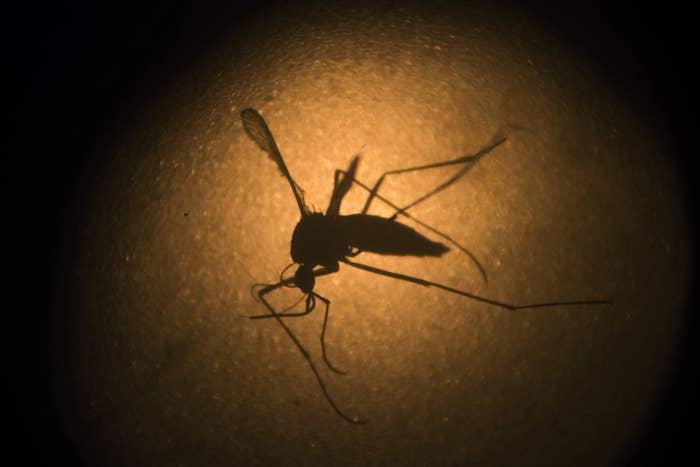
Canadian diplomats with “Havana syndrome” injuries show signs of pesticide poisoning, suggests a new international study, posing an explanation for mysterious long-term neurological ailments striking diplomats from the US and Canada in Cuba.
The finding suggests that the Zika virus crisis of 2016 may have inadvertently created the syndrome through excessive fumigation. Fears about the syndrome led to an international diplomatic row, with US diplomat numbers in Havana lowered, and Cuban diplomats expelled from the US in retaliation.
The results of the study suggest a compelling explanation for an otherwise bizarre syndrome that has captured international attention for years. But since it’s based only on observational data, the data should be viewed as preliminary, outside experts said.
“We actually found a specific brain region that was affected and that was the clue to everything else,” neuroscientist Alon Friedman of Canada’s Dalhousie University told BuzzFeed News of the study he led, leaked last Friday to the Canadian Broadcasting Corporation ahead of publication and peer review in a scientific journal. A copy of the study was sent to BuzzFeed News last week by a representative of Ben Gurion University of the Negev, where Friedman also holds an appointment, and reviewed by outside experts over the weekend.
“There was a kind of an ‘aha’ moment, when we realized what might damage this part of the brain,” Friedman said.
In late 2016, the US State Department reported that its diplomats in Havana began suffering a “health attack,” in the words of then–Secretary of State Rex Tillerson. At least 26 US diplomats and 14 Canadian ones eventually reported symptoms such as dizziness, deafness, difficulty concentrating, and other signs of head injuries, with the last case tallied from Havana in May 2018.
Initially linked to “sonic weapons” in news reports, explanations have ranged from a concussion-like syndrome to microwave injuries in limited studies published by doctors who treated the injured US diplomats. A Centers for Disease Control and Prevention investigation and a National Institutes of Health research effort have started as well, with outside observers raising the possibility of viral or mass psychology causes for the injuries.
In response to a request for comment on the study, the State Department sent a background statement to BuzzFeed News saying it was working with the Canadian government on investigating Havana syndrome and looking at the pesticide findings. Friedman said he presented the results to US officials “a few weeks ago,” as well as to Cuban ones.
The new study started out with “no preconceptions,” Friedman said, looking at 26 Canadian diplomats and their family members, referred by Canada’s foreign affairs ministry. Along with standard health measures, blood samples and brain scans were conducted, with a research scanner that divided the brain into 126 regions and analyzed for signs of blood vessel leakage pointing to brain damage. All of the measurements were also done on healthy people of similar backgrounds who acted as experimental controls.
Eight of the diplomats who were tested both before and after they lived in Havana showed signs of damage concentrated in one small part of the brain that handles cholinesterase enzymes needed for proper nervous system function. These enzymes are heavily involved in both concentration and forming memories. Similar damage was seen at the base of the brain, in a related region involved with both balance and sleep, said Friedman.
A broad chemical analysis found insecticides that interfere with cholinesterase, including the organophosphate insecticide Temephos, were in the blood samples of 6 of the 10 diplomats who were posted to Cuba two years ago, when widespread Zika mosquito spraying was ongoing. The tests also found 3-PBA, another common insecticide, in most of the diplomats. Their exposure corresponded to a sharp increase — as much as five times more often — in outdoor fumigations that Canada’s foreign ministry arranged around diplomatic housing in Havana in 2017.
All of that adds up to excessive exposures, Friedman suggested, which could have occurred during the Zika virus crisis of 2016. As the virus rampaged across South and Central America, Cuba ramped up its fumigation practices against the mosquitos. “Canadian embassy records furthermore confirmed a significant increase in the frequency of fumigations around and within staff houses beginning January 2017 concurrent with reported symptoms,” notes the study.

There is no way to irrefutably prove that the pesticides caused Havana syndrome, Friedman said, “short of sending another 20 diplomats to Havana and exposing them to pesticides, which wouldn’t be ethical.” But the theory at least offers a plausible explanation for the effect — a double dose of fumigants among diplomats — beyond the more wacky theories about sonic mystery attacks.
“The findings of this research are completely in line with previous studies,” environmental exposure and hearing expert Adrian Fuente of the University of Montreal, who was not part of the study, told BuzzFeed News by email. Numerous lab studies show pesticides damaging the inner ear in people and animals, for example, as well as in studies of Brazilian field workers exposed to high doses. “People who have been exposed to pesticides may present with difficulties understanding speech in the presence of background noise or when there are many people talking at the same time.”
The hypothesis is also useful since scientists can now continue to collect data among the rest of the Cuban population, which presumably also had some exposure to the insecticides, neuroscientist Sergio Della Sala of the University of Edinburgh, who was also not part of the study, told BuzzFeed News. “No single paper can be definite. But at least here we can discuss science to be verified or falsified,” he said.
Without blood tests from US diplomats, Friedman cautioned that his results speak only to Canadian ones, who reported a gradual worsening of symptoms. In contrast, some US diplomats reported a sudden onset of injuries. One diplomat previously interviewed by BuzzFeed News, said that it felt like “the full, frontal top of my face was exploding off my head,” and was accompanied by high-pitched sounds.
The Cuban embassy in Washington, DC, confirmed that Canadian experts had been in touch with Cuban scientists about the issue, and that “We are interested in working together to find a solution," a statement emailed to BuzzFeed News said. “From the very beginning, Cuba has reiterated that there has been no “attacks” executed against foreign diplomats in Havana.”
Because the study was leaked prior to publication, Friedman noted that his team’s study is still undergoing peer review by a scientific journal and might face changes in the final form. “We felt we had to let Cuban officials know about the findings as well as Canada and the US because there is a real public health concern here if this is a factor.”
Cuban scientists have not seen indications of the diplomats’ injuries among the general population. “We have not observed the ‘syndrome’ in the Cuban population, although the Canadians recognize that their staff could have been submitted to more frequent exposures,” neuroscientist Mitchell Valdés-Sosa of the Cuban Neuroscience Center in Havana told BuzzFeed News, by email. “We will carry out further studies of Cuban subjects to see if there are symptoms that we have overlooked.”
“The idea of a Havana Syndrome due to mysterious new ‘ray gun’ weapons is weaker,” he added.

